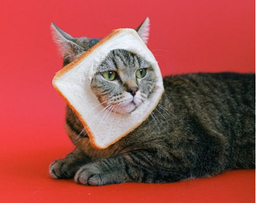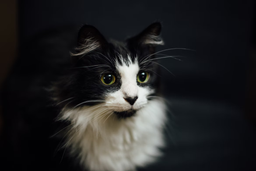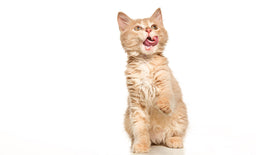A buyer’s guide to picking Siberian kitten food with lifetime dietary tips
Siberian kittens mature slowly, often continuing to grow for the first 4–5 years of their life. During this period, you must give them high-protein food to help them build a robust constitution that will complement their athletic lifestyle. According to vets and nutritionists, Siberian kitten food should be wet rather than dry, preferably offering proteins from whole meat and fish. Their meals should also be tailored to prevent common illnesses observed in this breed, which include feline lower urinary tract diseases (FLUTDs) like cystitis, urinary crystals, and urinary tract infections (UTIs).
In this guide, we’ll explain what an ideal Siberian kitten diet should look like and go over the necessary dietary changes once they hit adulthood.
What are the dietary needs of Siberian kittens?
All felines, irrespective of age, need balanced amounts of proteins, fats, vitamins, and minerals in their diet. As far as kittenhood is concerned, here’s why these nutrients are crucial:
- Proteins—All kittens, including Siberians, need animal proteins for muscular and skeletal development. This nutrient ensures your kitten develops healthily (e.g. gaining desired weight and teething) in due time. Proteins are also the main source of energy for kittens, with each gram of the nutrient providing four calories
- Fats—Fats help in nutrient absorption and optimisation of organ functions. For Siberian kittens, fatty acids like omega-3 and omega-6 also promote the growth of their signature thick winter coat
- Vitamins and minerals—Cats need several vitamins and minerals for:
- Enzyme production
- Nutrient utilisation
- Oxygen transportation
- pH balance
What about carbs?
Carbs aren’t really useful to kitties. Biologically speaking, cats have a shorter gastrointestinal tract than omnivores and herbivores. The enzymes they have are best for processing raw or cooked meat containing a negligible amount of carbs (about 2%–3%). Felines can break down carbohydrates in moderation, but overconsumption sensitises their stomach and triggers frequent episodes of vomiting, regurgitation, and diarrhoea.
How to choose good cat food
Being obligate carnivores, kitties can effortlessly absorb the nutrients essential to them from whole meat. The problem is—commercial cat food doesn’t usually spell out the main source of protein clearly. As a pawrent, you should do the research and use your discernment to pick the right products for your kitty. Don’t worry—we’ll help you determine what’s good and what’s not.

Siberian kitties grow up to be cheeky companions and happy-go-lucky adventurers. Watch out for the wrong products that can disrupt their well-being in the long run.
Source: siberian_reinhardt
Siberian cat food and kitten food—what products are suitable?
Whether you’re shopping for a kitten, an adult, or a senior cat, go for products that offer the golden ratio of feline nutrition:
- Over 50% proteins
- Up to 20% fats
- Not more than 3% carbs
Besides the nutrient distribution, you should also pay attention to the:
- Source of proteins
- Filler content
Which proteins are good for Siberian cats?
Your kitty’s food should offer biologically appropriate proteins from whole meat, fish, and organs. This may not seem like a big deal because all products come with “beef flavour” or “fish meal” written all over them, right? Here’s the catch—cat food is a massive profit-generating industry, and what you see on the labels can be super misleading. Most products don’t contain real meat but cheap and suboptimal substitutes, such as:
- Undefined meat, fish, and bone meals, being processed concoctions of the animal byproducts discarded by the human supply chain
- Plant proteins like:
- Corn or wheat gluten
- Tuber proteins extracted from potatoes, yams, and sweet potatoes
- Casein (dairy protein)
- Hydrolysed proteins (they enhance flavours like the infamous monosodium glutamate, popularly known as MSG)
These proteins do the bare minimum and fill your cat’s tummy but hardly contribute to their long-term health. Siberian cats on poor-quality proteins tend to have a weak immune function and may suffer from several health issues like:
- Underdeveloped muscles and anorexia
- Excessive shedding
- Unmanageable hairballs
- Gum diseases and tooth loss
- Dull and patchy coat
When buying cat food, always opt for products with whole meat proteins that offer enough taurine, an amino acid necessary for healthy cardiovascular function in felines. Siberian cats are genetically predisposed to heart diseases as they get older, and consuming taurine-rich lean meat like chicken, turkey, tuna, and salmon can boost their cardiovascular health. Dark meat like lamb, beef, and pork also contain taurine, but they are high in fat, which is why they are not recommended for regular consumption.

Icky fillers are such vibe killers, hooman. Kitties bloom on meat, not wheat.
Source: frau-m
Is your kitty’s food overflowing with fillers?
Manufacturers can get real creative while adding fillers to cat food. You’ll be lured into buying products loaded with vitamin-rich fruits and veggies, but these ingredients don’t do much besides adding volume to the food! Your kitty’s food should be dominated by meat, not non-nutritive fillers like grains, fibre, and dairy products.
A nifty trick to figure out the filler content in a product is to note down its crude protein, crude fat, and moisture percentages. Add these values and deduct the total percentage from 100—the resulting figure is your filler percentage, which should ideally be under 5.
Why getting dry food for your Siberian cat is a mistake!
Most vets don’t recommend dry food for any cat, but cat kibbles can be a special curse for Siberian kitties. This breed, like their Maine Coon and Norwegian Forest cousins, is prone to developing renal and urinary ailments, even at a young age. Consuming low-moisture biscuits can wreck their hydration levels, which hurts the kidneys over time.
Cats are not inclined to drink water because they are used to getting required hydration through the moisture content in raw meat. That’s why domesticated cats should consume wet food regularly for optimised kidney functions.
Besides being dehydrating, biscuits are also high in carbs like grains, rice and pea starches, and sugar that help shape these products. Excessive consumption of carbs may lead to:
- Digestive issues—Many cat parents have reported their Siberian kitty suffering from poor appetite, constipation, irritable bowel syndrome (IBS), and nausea due to a dry food diet
- Diabetes—Since cats cannot metabolise carbs well, consuming biscuits increases the risk of developing metabolic disorders like diabetes. Early signs of the condition include gorging or overeating because of volatile blood sugar levels
- Obesity and comorbidities—According to a study on dry cat food, researchers found such products to cause weight gain and related conditions like arthritis and hypertension in felines
Feeding dry food to weaning Siberian kittens is not a good idea as ill-shaped biscuits are a major choking hazard for kitties who cannot chew. It can also lead to unhealthy eating habits like kibble addiction and rejection of wet food down the line.

Say no to fillers and yes to whole meat—Untamed is the jackpot for Siberian kitties!
Image (c) Untamed
Want your Siberian kitten to grow like a champ? Try Untamed!
If you are looking for the best food for your Siberian kitty, look no further than Untamed! We prepare meals with the juiciest cuts of human-grade whole meat, steamed in scrumptious gravies and broths! Our catalogue offers:
- Complete gravy food with 63% whole meat
- Complementary jelly food with 60% whole meat
We keep our products free from iffy fillers and additives like meat derivatives, plant proteins, grains, sugar, taste enhancers, artificial colourings, and chemical preservatives. We prepare vet-formulated meals that work for felines of all breeds, paying special attention to:
- Proteins—Our meals contain two times more protein content than most retail products and are perfect for optimised physiological and mental growth in all kittens
- Nutrition—With Untamed, you don’t have to worry about taurine or vitamin deficiencies. Our recipes are not only balanced but also offer high nutrient availability thanks to our gentle steaming method
- Ingredients—Our formulas are safe for all felines. Our meals are free from common allergens. If your kitty often suffers from food allergies, try our single-protein options, Chocka Chicken and Tuck-in Tuna
- Taste—The fussiest of felines have tasted our meals and approved the appetising flavours we offer! If your pet seeks variety, impress them with our aromatic meals made with chicken breast and liver, duck, tuna, salmon, mackerel, sardine, ham, and shrimp
Take our TRY NOW quiz and fill us in on your kitty’s health status and food preferences. We can send you an Untamed trial pack at an awesome price!
From blooming kittens to laidback seniors—Untamed is excellent for every kitty!
We design our formulas to work at every life stage—they are equally healthy for kittens as well as adult or senior cats! Our grain-free food can boost feline health at different life stages. Whether it’s supporting a pregnant queen or reigniting appetite in a senior cat, managing diabetes or improving weight in a malnourished cat—our dishes fit in any diet plan!
Our moisture-rich meals also protect renal health and prevent the onset of various FLUTDs.
We have heard some great feedback from our happy clients. Here’s what they have to say about the many benefits of switching their kitties to Untamed:
|
Timeline |
The Untamed effect |
|
One week |
|
|
Two months |
|
|
Four months |
|
|
For life |

From feisty explorers to homely furballs, our lip-smacking taste unites all kitties!
Image (c) Untamed
We care about you, too—Untamed is full of perks!
Our online cat food ordering service is all about making life easier for you and your kitty. Going Untamed means you’ll never have to stress about food shopping for your kitty. Our perks include:
- One-day deliveries
- Free cat food shipping
- Regular delivery of monthly food supplies
- Hassle-free modification or cancellation of orders
Begin your Untamed journey by ordering our assorted trial pack, filled with a variety of delicacies for your kitty to sample! Here’s how to get one:
- Take our TRY NOW quiz
- Select the products you like
- Place the order
We also focus on creating ethically sound products by ensuring our:
- Packaging is fully recyclable
- Meat is from cruelty-free farmers
- Seafood is from dolphin-safe and sustainable suppliers
Is buying kitten food necessary for Siberians?
Age-appropriate cat food is more of a marketing ploy than an actual necessity. Cats in the wild don’t eat different meat in different life stages—it’s always birds, rodents, frogs, insects, slugs, etc. for them. Domesticated kitties can get balanced nutrition at any life stage as long as their meals contain whole meats.
The products marketed for kittens or adult cats usually vary in calorie density. An average kitten food is often packed with carbs to provide more calories, while adult cat food options usually offer lower percentages of carbs.

What’s this giant troll doing in my territory? Are you hatching a shady conspiracy, hooman?
Source: maikorestir
The truth is, it’s the serving size and meal frequency, not the type of food, that plays a crucial role during the transition from kittenhood to adulthood. Siberian cats do most of the growing till they are two or three years old and need to eat more during this time, usually in small portions spread over numerous meals. Once they achieve their adult weight and are sterilised, they need less food for sustenance.
If you’re confused about the feeding frequency, here’s a sample meal plan to help you out:
|
Age |
Weight (in kilos) |
Daily intake (wet food) |
|
3 weeks to 4 months |
0.5–1.5 |
20–48 g |
|
4–9 months |
1.5–3.2 |
48–180 g |
|
9–24 months |
3.2–4.4 |
180–300 g |
|
24–36 months and up |
4.4–6.4 |
180–250 g |
Food for Siberian kittens—what to avoid?
Siberian kittens have vulnerable digestive tracts, and giving them harmful food can trigger diarrhoea or food poisoning. Avoid feeding them:
- Raw chicken, eggs, or bones—They carry a high risk of pathogen contamination
- Human snacks or homemade food—They’re too seasoned for cats and may also contain toxic ingredients like onions, garlic, and grapes
- Random fruits and vegetables—Their dense texture makes them hard to digest. Certain fruits and veggies, like oranges and green tomatoes, can also be toxic
- Milk (whether bovine, soya, or almond)
- High-fat treats like crisps and ice cream
- Nuts—They’re a choking hazard and certain varieties, like macadamia nuts, are also toxic

![Best food for Ragdoll cats in the UK [Broken Down]](http://untamed.com/cdn/shop/articles/featured_best_food_for_ragdoll_cats_uk.jpg?v=1646818249&width=256)

